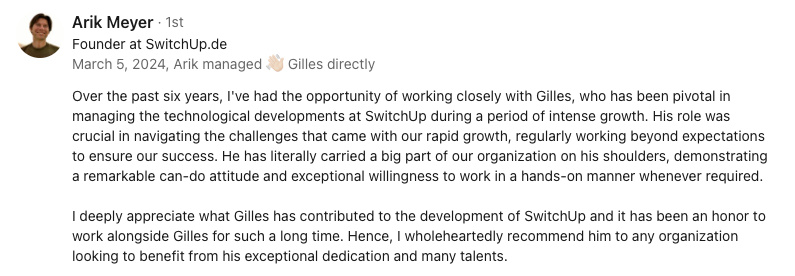Abstract:
Tech startups entering the European market face promising opportunities and significant challenges, particularly with the complex regulatory landscape centered around data protection and the General Data Protection Regulation (GDPR). While GDPR compliance can be costly, it is crucial for avoiding penalties and fostering consumer trust, ultimately enhancing market presence and investor confidence. Beyond mere compliance, strategic alignment with GDPR can open doors for operational efficiencies and market expansion. Startups can leverage the support of incubators and accelerators, which provide invaluable legal and compliance guidance, workshops, and mentorship. These resources help startups navigate cross-border regulations, manage resources effectively, and tailor compliance strategies to align with business goals. Success stories such as Revolut and Klarna illustrate how strategic partnerships with incubators and accelerators can transform compliance challenges into competitive advantages, facilitating growth and strengthening market positions. Embracing compliance not only enhances reputation but also prepares startups for future regulatory changes, with technological advancements like AI and blockchain further streamlining compliance processes. As the European regulatory landscape evolves, incubators and accelerators will continue to play a pivotal role in guiding startups to thrive amid these challenges.
Entering the European market can be both exciting and challenging for tech startups. The promise of new opportunities often comes with complex regulations, particularly around data protection and privacy. Complying with the General Data Protection Regulation (GDPR) is a significant part of this journey. It's not just about following the law; it's also about building customer trust. While compliance can be tough, using the right strategies can turn these challenges into advantages, helping startups thrive. This article explores how startups can navigate these regulations, with support from incubators and accelerators, to make compliance a competitive advantage.
Understanding the EU compliance landscape
Tech startups entering the European market will quickly encounter a web of regulations, especially concerning data protection and privacy. Navigating these rules requires careful planning, but it's essential for legal compliance and building consumer trust.
GDPR and data protection challenges
The General Data Protection Regulation (GDPR) significantly influences how tech startups handle personal data in Europe. Complying with GDPR can be costly, often taking a substantial portion of a startup's revenue. These expenses arise from managing detailed requirements like data breach notifications and user consent. Despite these challenges, prioritizing GDPR compliance is crucial. It not only protects startups from hefty fines but also strengthens their relationship with customers by demonstrating a commitment to data protection. In essence, while demanding, GDPR helps build trust with users and establish a strong market presence.
Beyond compliance, GDPR offers strategic benefits. While it can divert resources from innovation, the advantages are worthwhile. Compliance facilitates market expansion and builds consumer trust. It can even lead to operational efficiencies and open new market doors in the EU. By aligning data protection with business goals, startups can gain investor confidence and stand out in a crowded market.
Cross-border regulations
With tech being global, startups can't focus solely on local regulations if they wish to expand. Cross-border regulations add complexity, involving data transfers and adapting to different national laws. Startups need to manage resources effectively to maintain compliance. Strategic planning and external expertise are key here. By engaging with legal professionals and utilizing incubators, startups can reduce their compliance burden and stay ahead of changing regulations. Support from incubators also provides legal resources and guidance, helping startups meet current standards and prepare for future changes, ensuring smooth operations and growth.
Navigating legal challenges with incubators and accelerators
In the tech startup world, incubators and accelerators play crucial roles. They not only drive innovation but also offer essential support for legal and compliance issues. While both provide valuable resources, they serve different purposes. Incubators typically focus on nurturing early-stage startups, offering resources and guidance over a longer period. Accelerators, on the other hand, are designed to rapidly scale startups, providing intense, short-term support.
Legal and compliance support
Incubators and accelerators offer significant legal and compliance support, helping startups navigate regulatory challenges. They organize workshops with legal experts covering key topics for startups:
- Business formation: Guidance on setting up a business legally.
- Intellectual property rights: Strategies to protect ideas and products.
- Employment law: Understanding labor regulations for growing teams.
- Data protection: Ensuring compliance with laws like GDPR.
- Sector-specific regulations: Advice for industries like healthcare and fintech.
These workshops are strategic resources that help startups anticipate and manage legal challenges. Personalized legal clinics offer tailored guidance for startups facing specific hurdles. These one-on-one sessions with legal professionals provide actionable solutions, enhancing compliance and strategic planning.
Mentorship and resources
Mentorship from legal experts in incubators is crucial for startups. It offers the confidence needed to navigate complex regulatory environments. Regular interactions with mentors speed up compliance processes, reducing risks that could hinder progress. Access to extensive resources is another major advantage. These include regulatory updates and legal networks, keeping startups informed and prepared for compliance changes.
- Regulatory updates: Frequent newsletters on law changes.
- Legal networks: Connections to legal experts for advice.
- Industry-specific seminars: Sessions for regulated sectors like biotech and finance.
Examples show the value of these resources. Fintech startups, for example, have used these networks for crucial regulatory guidance, helping them thrive in regulated industries.
Success stories in compliance
Tech startups face tough regulatory challenges, but with the right support, these hurdles become growth opportunities. Here, we look at how European startups like Revolut and Klarna have succeeded with help from incubators and accelerators.
Revolut's journey with Level39
Revolut, a fintech startup known for its innovative solutions, illustrates the power of tailored incubator support. With help from Level39, a top technology accelerator, Revolut navigated fintech regulations effectively. Level39 provided specific regulatory guidance, helping Revolut streamline compliance processes. This support enabled Revolut to scale operations while maintaining strong compliance, showing how specialized support can benefit fintech startups.
Klarna's strategic networking
Klarna, a leader in e-commerce payments, highlights the importance of networking for compliance. By connecting with industry-specific networks, Klarna accessed the compliance expertise needed for its industry. This strategic approach shows how networks and partnerships play a crucial role in achieving compliance, proving that the right connections can ease regulatory burdens.
Mastering compliance in the European tech sector
Tech startups entering Europe must navigate a complex regulatory landscape, especially regarding data protection and cross-border operations. Understanding these challenges is key for legal compliance and consumer trust.
GDPR and data protection challenges
GDPR compliance is a significant challenge, often taking a large portion of revenue. Despite these costs, it's crucial for avoiding penalties and building trust with users. Compliance also opens doors to market expansion and builds reputation. Aligning data protection with business goals can enhance investor confidence and offer a competitive edge. Beyond GDPR, startups must consider cross-border regulatory challenges.
Cross-border regulations
Cross-border regulations add complexity, requiring careful resource management for compliance. Strategic planning and external expertise are necessary. Support from incubators or legal advisors helps navigate these laws. Proactive planning and external expertise ease compliance burdens. Partnering with legal professionals and using incubators offers guidance tailored to industry needs, helping startups meet standards and prepare for future changes.
Role of incubators and accelerators
Navigating regulations is tough for tech startups, especially in Europe. Incubators and accelerators support startups in overcoming compliance hurdles.
Legal and compliance support
Incubators and accelerators provide knowledge to tackle regulatory challenges. They organize workshops on key topics:
- Business formation: Understanding legal setup essentials.
- Intellectual property: Protecting products and ideas.
- Employment law: Navigating labor regulations.
- Data protection: Adhering to regulations like GDPR.
- Sector-specific standards: Customized advice for industries like healthcare and fintech.
These workshops, led by experts, arm startups with insights to mitigate risks and thrive. Personalized clinics ensure startups receive tailored solutions for their challenges. Tailored legal clinics let startups address specific regulatory issues with advisors, which is crucial for resolving challenges and enhancing compliance strategies.
Mentorship and resources
Mentorship is a key support offered by incubators, guiding startups through compliance processes and mitigating risks. Access to resources complements mentorship. Regulatory updates and newsletters keep startups informed about changes, helping them remain compliant.
- Regulatory updates: Continuous information on law changes.
- Legal networks: Connections to experts for advice.
- Industry-specific seminars: Focused learning for sectors like finance and biotech.
Examples show how fintech companies have used these networks to stay ahead of compliance challenges, preparing for future regulatory landscapes.
Successful compliance stories
European tech startups face stringent regulatory challenges, but with help from incubators and accelerators, they can turn compliance into a competitive advantage.
Revolut's fintech success with Level39
Revolut demonstrates how tailored support helps overcome regulatory complexities. With Level39, Revolut got fintech-specific guidance, streamlining compliance and expanding operations without compromising on adherence. This partnership fortified Revolut's market position, showing the success of focused support.
Klarna's strategic networking approach
Klarna highlights the power of networking in compliance. By engaging with networks with e-commerce expertise, Klarna navigated its industry's regulatory landscape. This approach shows how incubators provide access to networks and partnerships crucial for regulatory needs.
Strategic selection of incubators
Choosing the right incubator is crucial for startups facing legal and compliance challenges. The right incubator offers support and resources for sustainable growth.
Key criteria for selection
Startups should prioritize incubators with strong legal expertise and compliance support. Look for:
- In-house legal teams: Access to legal professionals for timely advice.
- Regulatory guidance: Updates and workshops on laws.
- Legal networks: Connections with experts for specialized advice at reduced rates.
Consider industry-specific seminars, especially for regulated sectors like fintech. Alumni feedback provides insights into the effectiveness of these resources.
Evaluating success stories and alumni feedback
Reviewing success stories and gathering alumni feedback helps assess an incubator's impact. This offers a realistic view of strengths and weaknesses.
- Success stories: Case studies show strengths in facilitating compliance and growth.
- Alumni feedback: First-hand information reveals nuances about the incubator's environment and the effectiveness of its support.
Maximizing compliance support benefits turns compliance into a strategic advantage.
Maximizing compliance benefits
Startups that leverage compliance support can turn legal requirements into strategic advantages, building trust and gaining a market edge.
Building trust with compliance
Robust compliance programs signal reliability to investors, portraying a well-managed company. This perception attracts investment, as investors prefer companies with strong controls. Reports show strategic compliance enhances credibility and attracts investment opportunities. Proactive compliance also boosts brand reputation. Startups that protect data and follow regulations foster consumer trust, creating loyalty. This differentiation builds long-term customer relationships, giving a competitive edge.
Long-term advantages
Early compliance processes pave the way for operational efficiency, simplifying market entry and scalability. Compliance streamlines operations, reducing market entry friction and allowing growth focus. Proactive compliance strategies prepare startups for future changes, fostering sustainable growth. Staying ahead of regulations ensures resilience, helping startups thrive in a competitive environment.
Embracing future trends in compliance
As Europe's regulatory landscape evolves, incubators and accelerators will play key roles in guiding startups through compliance.
Regulatory changes and incubator roles
The EU updates its regulatory framework often, demanding incubators enhance support structures. Technological advancements influence regulations, so incubators must stay informed. Continuous learning and adaptation are crucial. Regular updates on changes ensure incubators remain reliable support systems.
Technological advancements
Technology like automation and AI is transforming compliance. These tools streamline processes and enhance accuracy. Blockchain and data analytics offer secure compliance management. Blockchain provides transparent record-keeping, while data analytics offer insights into regulatory risks. These technologies equip startups with robust compliance solutions.
In summary, regulatory changes and technological advancements shape incubators' future roles. Staying informed and leveraging technology provides startups with tools to thrive in changing environments. Venturing into the European market offers tech startups a promising opportunity with its own challenges, especially around GDPR. While daunting, GDPR builds trust and expands market presence. With incubators and accelerators, compliance becomes a strategic benefit, offering guidance and resources for navigating complex regulations. Success stories like Revolut and Klarna show the power of strategic partnerships in overcoming challenges. Embracing compliance can enhance growth and reputation.














